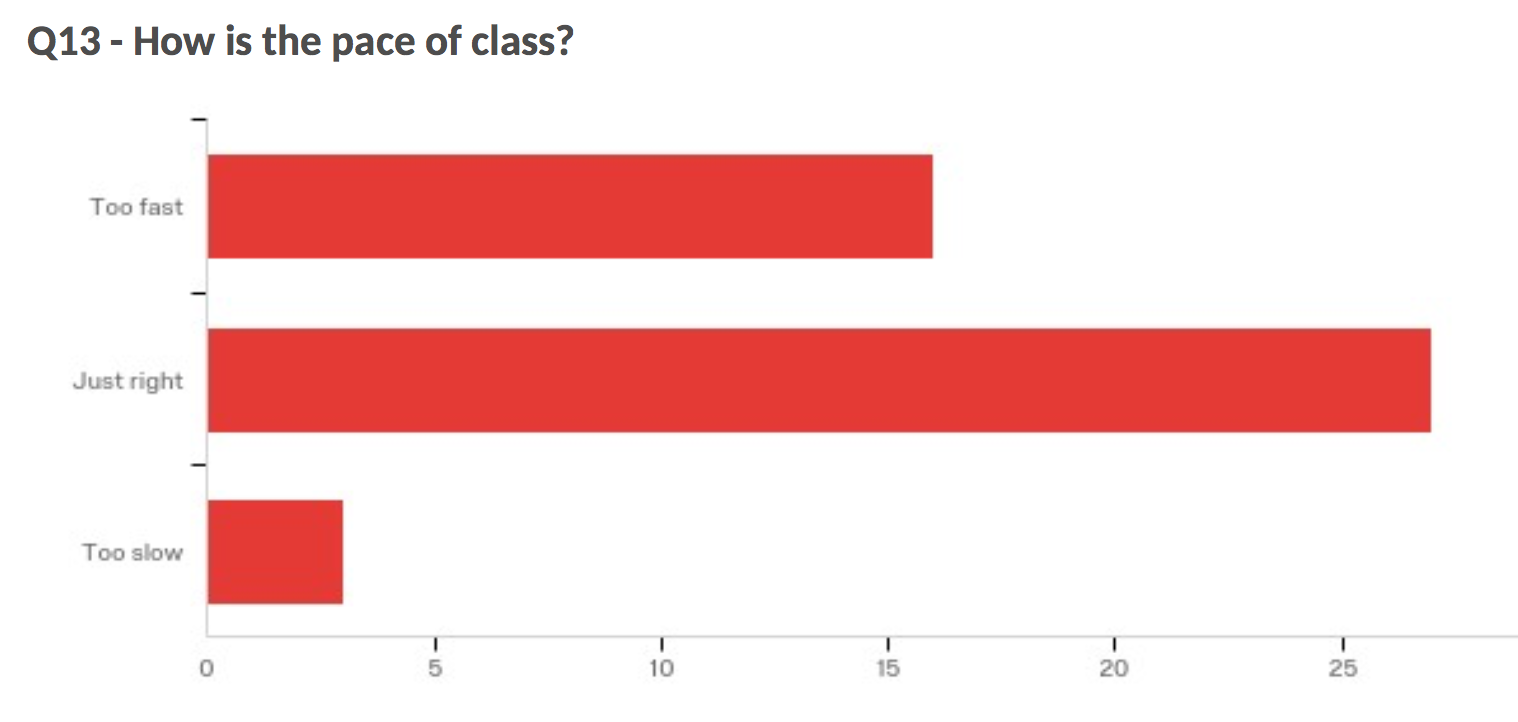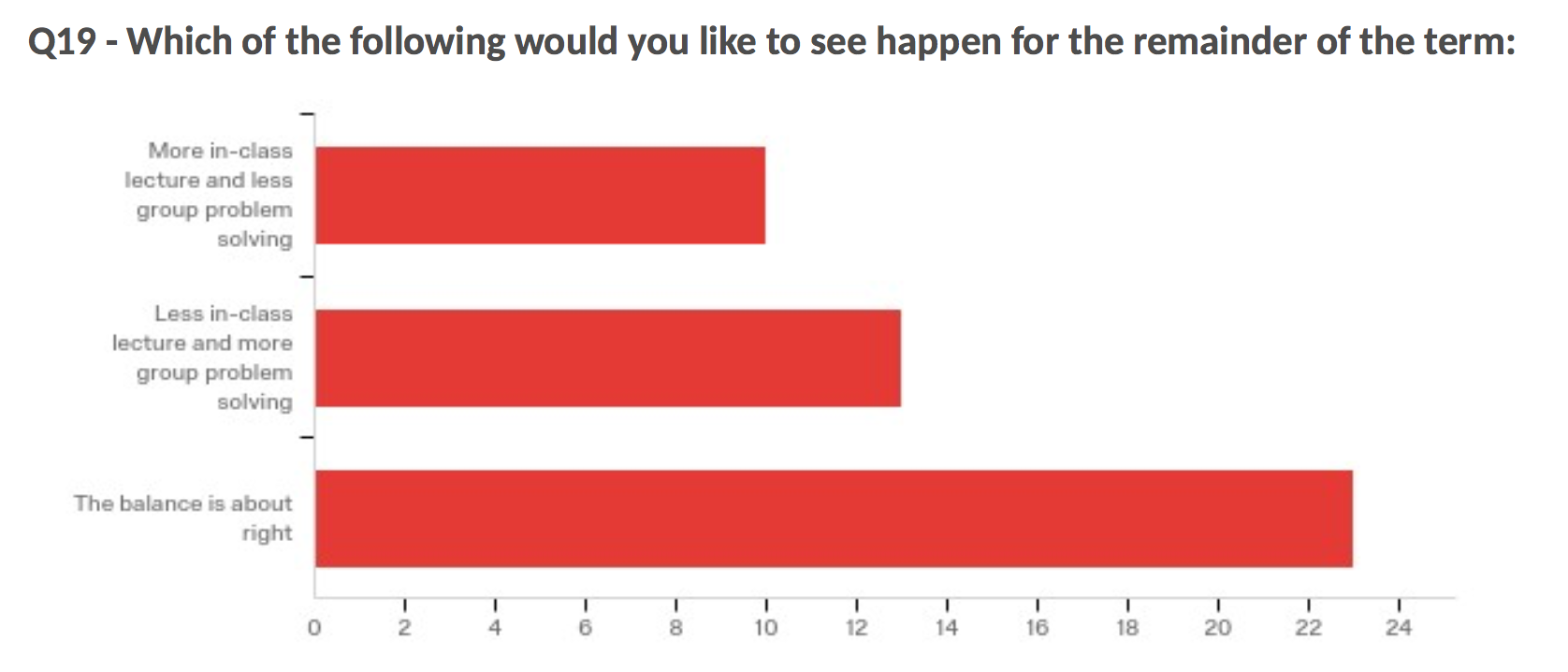Activity - Mid-term feedback
Goals
- for students to identify how they can help improve their own learning
- for students to identify how they can help their group learn
- for the professor to identify how he can help students learn
Activity
We discuss the feedback from the mid-term survey conducted by DCAL and the Instructional team. Below are a few of the themes that came through loud and clear:
Things we do well
- we compliment each other; we respect each other
- we work together to learn together
- we all contribute to understanding the task, understanding the material, and devising a solution
- we rotate partners and the ‘point person’ on activities
- we explain difficult concepts to others in our group
- we ask each other questions when we need help
- we ask questions to help guide others toward understanding
- we ask our Learning Fellow when we get stuck
- where we have different levels of experience, the more-experienced help the less-experienced.
Things students can do
- I can pay more attention in lecture, and be ready to engage with the group activity
- I can attend regularly - and be part of my group
- I can participate more in my group activity
- I can encourage my group to work together rather than independently
- I can encourage each member to actively contribute
- I can rotate partners with whom I work
- I can encourage my group to rotate the ‘point person’ on activities
- I can ask more questions to help others understand the activity or the material
- I can make sure everyone’s voice is heard
- I can create a groupme, slack, or other chat group to encourage group communication outside class
- I can get to know my team better - get together outside class
- I can read the lecture notes and labs more carefully
- I can help everyone by contributing answers on Piazza
Things the professor can do
- he can clarify opportunities for help outside class
- he can vary how he conveys concepts in lecture: whiteboard work, live-coding programs, finished programs, in-class activities
- he can choose better (more interesting) examples
- he can explain pointers more clearly
- he can slow down the pace
- he can speed up the pace
- he can spend more time on in-class activities
- he can spend less time on in-class activities
- he can provide solutions to in-class activities
- he can ensure the lectures (and notes) cover everything needed for the labs
- he can streamline the lecture material - avoid ‘lecture extras’
- he can clarify the expectations for each lab
- he can ensure faster turnaround on lab grades/feedback
- he can ensure section leaders are better prepared for sections
- he can reconsider the policies on attendance and assigned seating
- he can reconsider the assigment of groups at start of term
Other observations
- the classroom furniture arrangement is not conducive to lecture
- in-class activities are helpful to some students
- out-of-class coding is how students learn best

